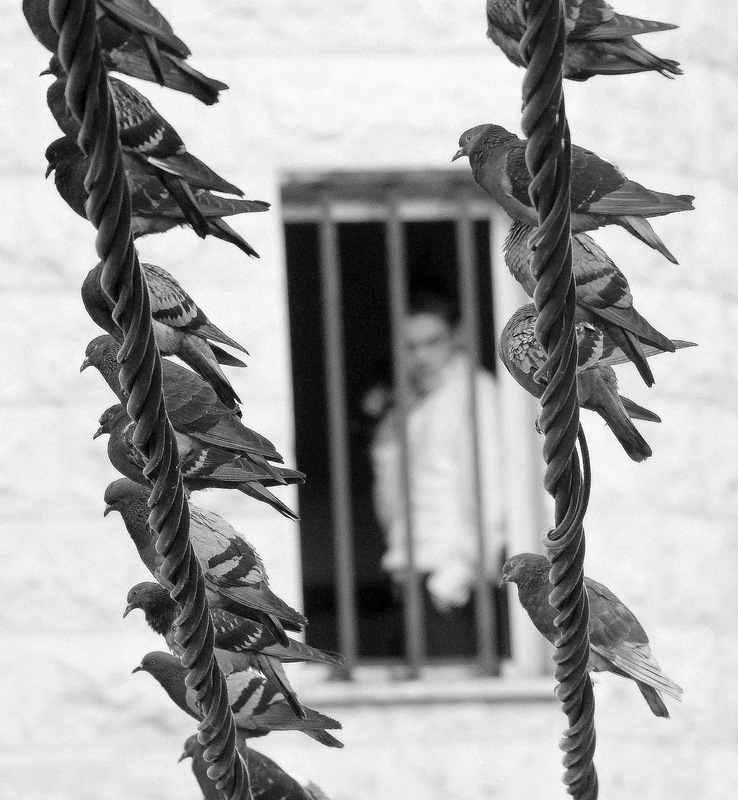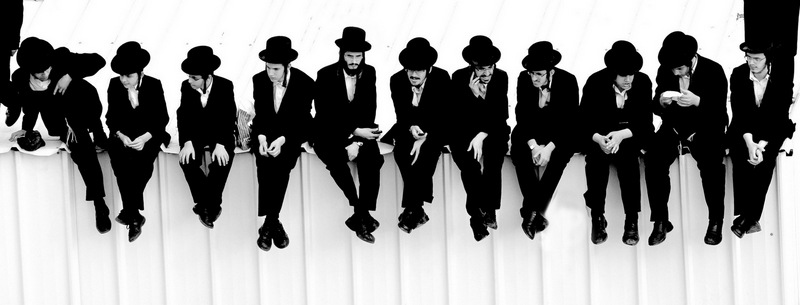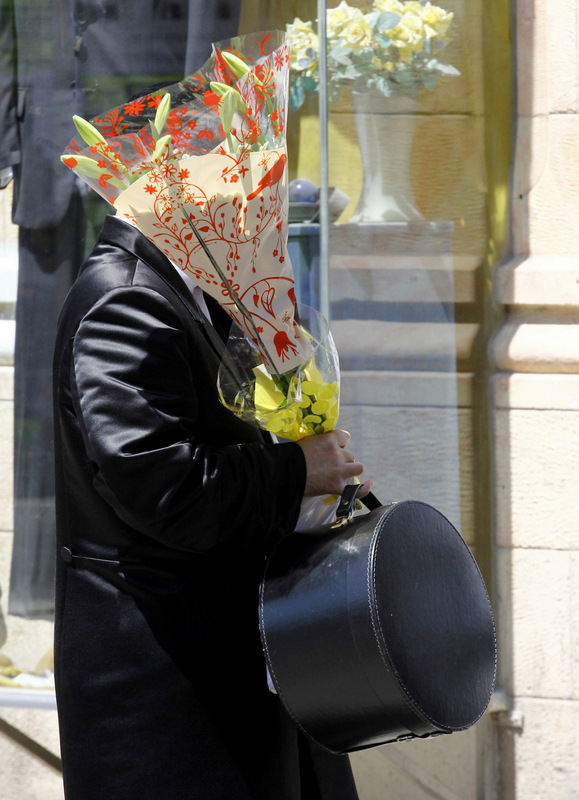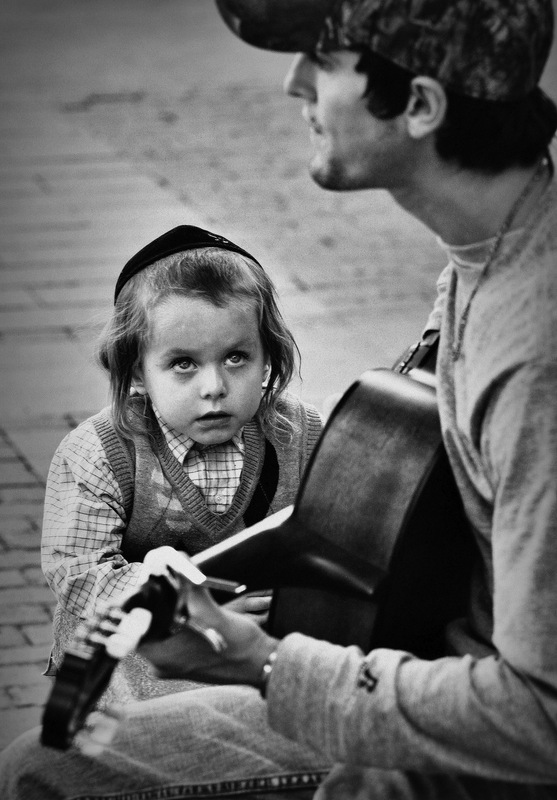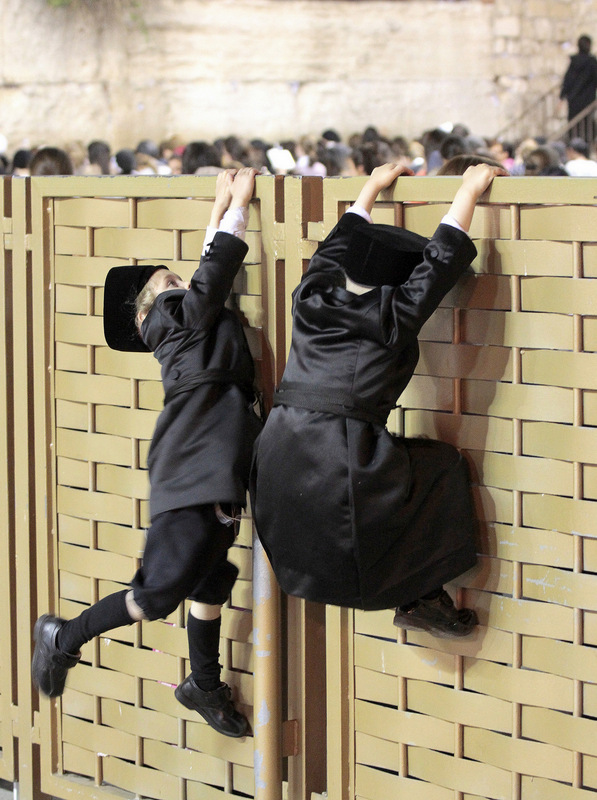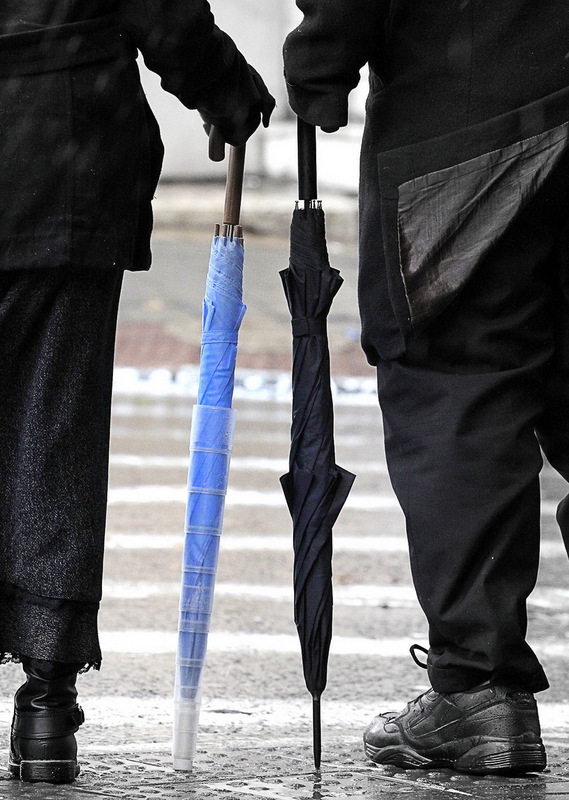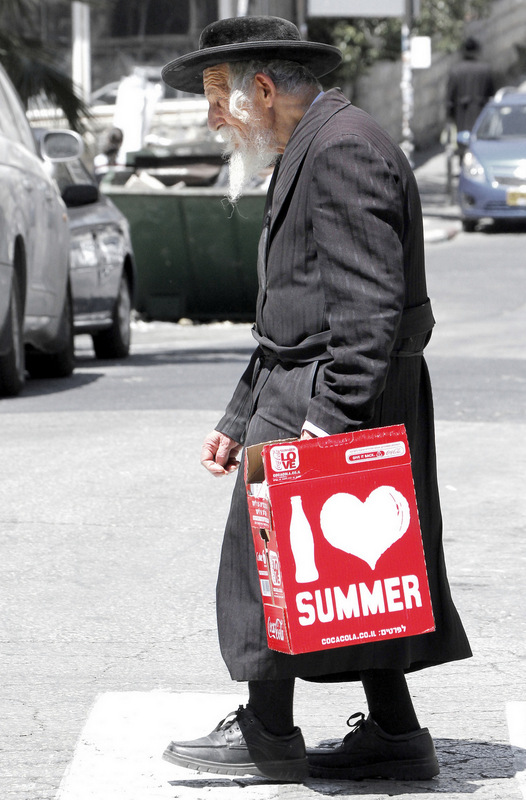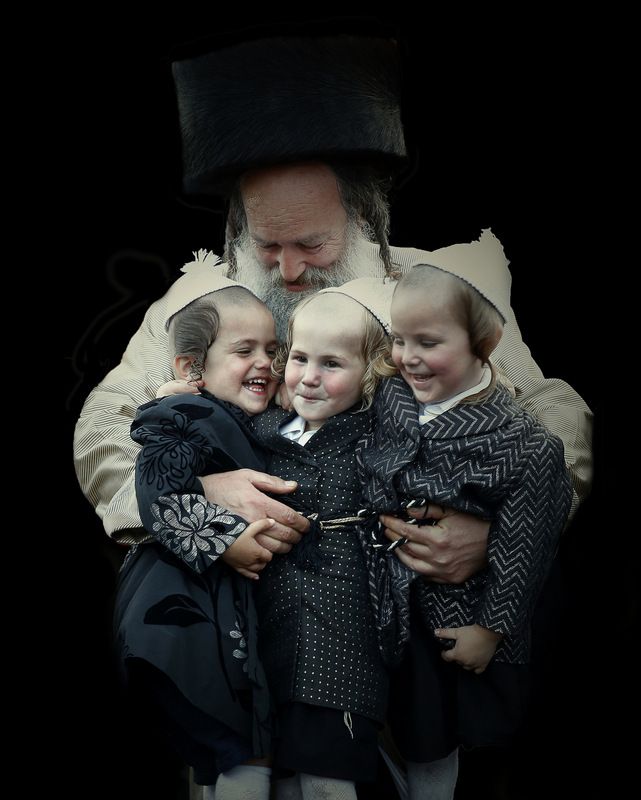Photographer Ezra Landau: "I Caught the Image Without Knowing It Would Go Viral"
Ezra Landau captures the most surprising and contrasting photos you've seen. In a special interview, he talks about his journey into photography, his mentor (Rebbe Nachman of Breslov), and moments filled with humor and faith.
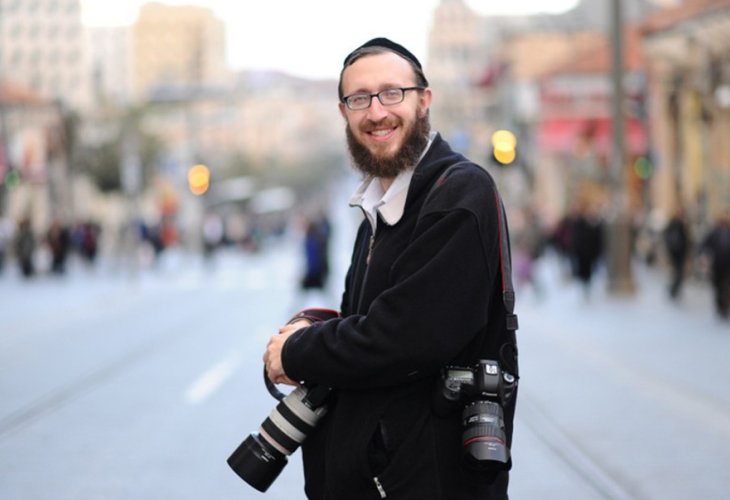 Photographer Ezra Landau (Photo by Mendy Hechtman)
Photographer Ezra Landau (Photo by Mendy Hechtman)It was Sunday afternoon last week, the day of the vehicular attack in Armon Hanatziv. Photographer Ezra Landau was wandering around the central bus station in Jerusalem with his camera in hand, his eyes searching for a snapshot worthy of capture. "On such a sad day, I felt the urge to photograph something conveying unity. I wasn't sure if I'd find it in a living being, vegetation, or an inanimate object, but I searched," he shares, "Just like Eliezer, Abraham's servant, I prayed to Hashem to provide me with the right image on my path."
His prayer was answered in an unexpected way. As he exited the building of the central station, Landau noticed an elderly Arab man sitting shivering in the cold. At that moment, a Jewish man approached, took a woolen cap from his pocket, cut it, and placed it on the Arab man's head. "This Jewish man looked like a caring father," Landau recounts emotionally, and, naturally, he captured the scene.
This photo, which Landau published on his Facebook page that very day, received hundreds of thousands of comments and was widely shared. "I received responses from people who were deeply moved by the image. One Arab woman even wrote to me in broken Hebrew, 'I cannot believe it, a religious man put a hat on the Arab's head, I'm shocked.' I also received responses from overseas and from all over the world. I felt I had the privilege to sanctify Hashem’s name."
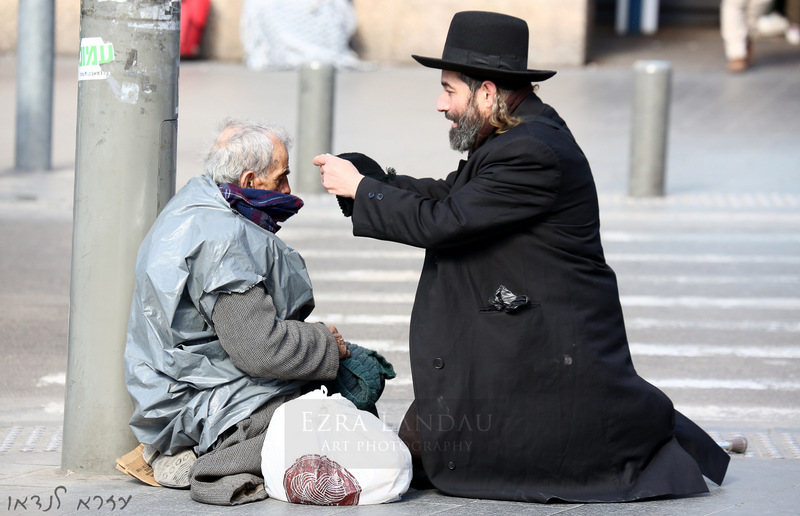
A Gift of Perception
Landau describes his ability to notice sights not always seen by the eye and capture them through the camera lens as a gift from the Creator. And this didn’t start overnight, but a few decades ago.
"I was born in Paris to an intellectual, religious, open-minded family," he shares. "My parents were professionals, but my father always loved nature photography, and my mother, aside from her profession, was a painter and greatly loved art. At home, I was always encouraged to create and observe. By the age of 6, I already had a camera in my hand..."
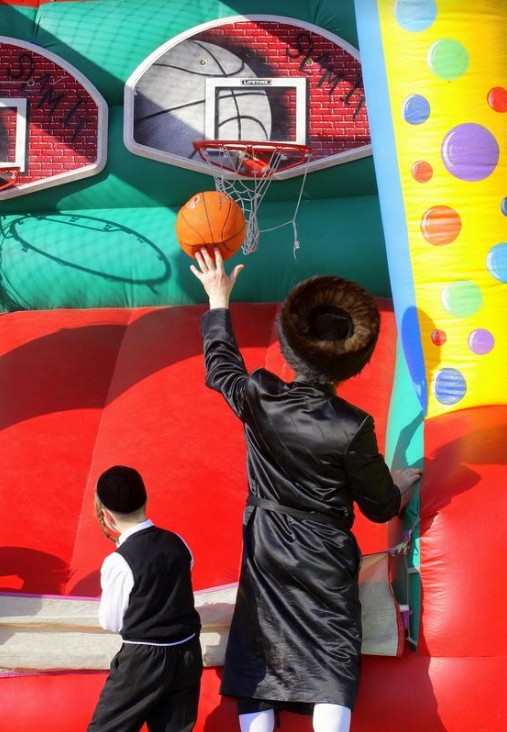 (Photo: Ezra Landau)
(Photo: Ezra Landau)Landau immigrated to Israel at Bar Mitzvah age. Over the years, he strengthened in faith and now sees himself as an integral part of the Haredi sector. Yet, his photography hobby has never left him, leading to his current professional pursuit.
"In addition to street photography, which I do all day, I work as a wedding and studio photographer," he shares, "But always, whether photographing events or people, I strive for the picture to reflect their inner world. That means that if, for example, I photograph a child at a 'chalakeh,' I won't bring him to the studio and pose him with a cap or accessory. Instead, I’ll take him to nature and let him run and be himself. When I see he’s forgotten the camera, I capture him, that innocent and simple gaze. To me, that's worth more than any staged studio photo."
But Landau's main focus is street photography, investing every spare minute of his day in it. "It's fascinating, I love it," he admits, "And sometimes I feel that even though I've become Israeli and deeply integrated into the Haredi community, I still remain somewhat of an observer. I stand aside, watch the happenings, and because of this, I can see things differently, with a completely different perspective. It teaches me a lot."
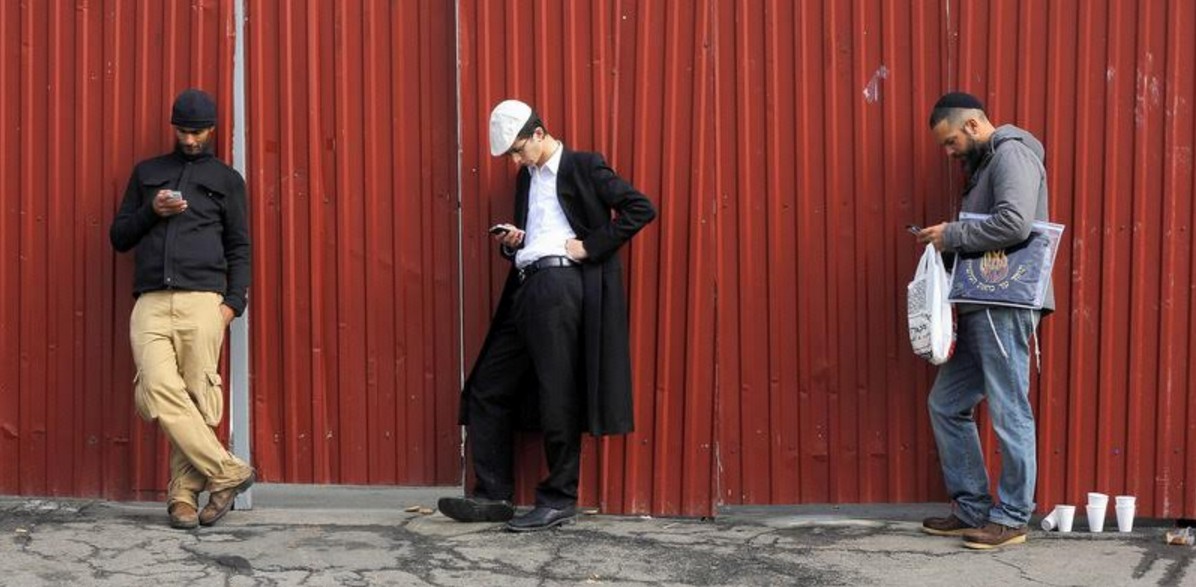
Photography Teacher - Rebbe Nachman of Breslov
Landau cannot resist sharing an especially moving moment he experienced as a photographer: "A few years ago, I exhibited a large display and saw a Jewish man standing in front of one of the photos, which I didn't find particularly special, and he was crying and crying. I approached him, and he explained: 'You touched a place within me I can't explain,' and he began listing deep points he saw in the image that I was entirely unaware of, let alone intended. It proved to me the great responsibility I have when I photograph."
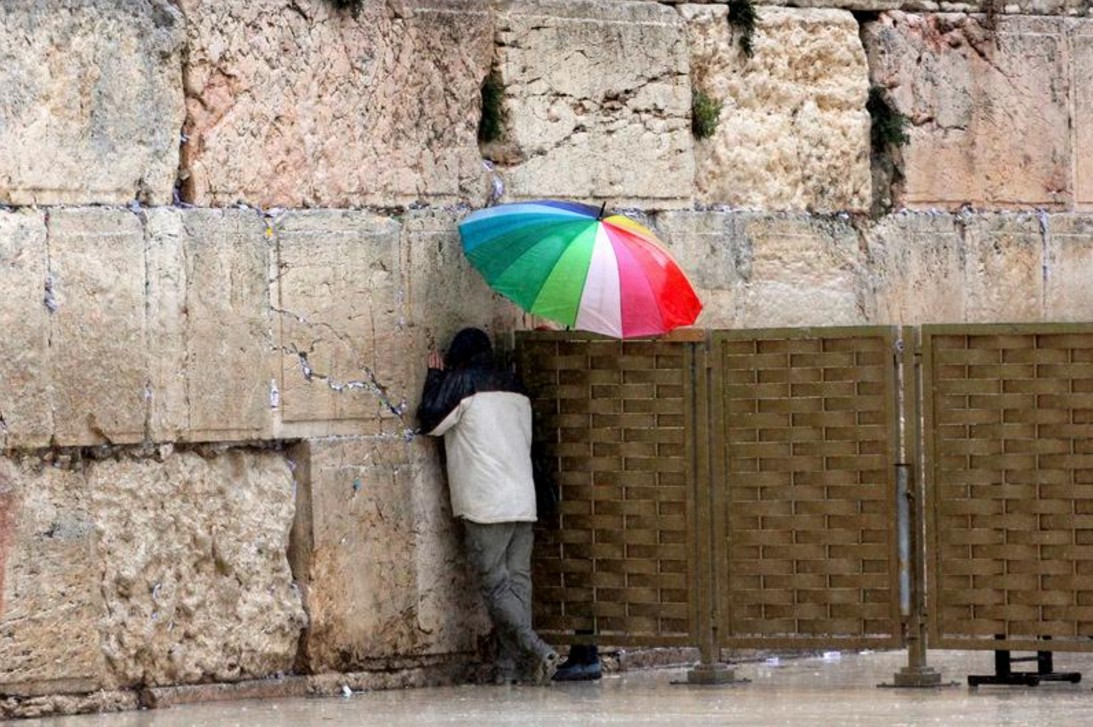 (Photo: Ezra Landau)
(Photo: Ezra Landau)And where did you learn the profession?
"I studied at several different places, but my true great teacher is Rebbe Nachman of Breslov. As funny as it sounds, through his writings and advice, I learned to stop time, go out into nature, and introspect. That allowed me to delve into the most truthful points within me. I learned from Rebbe Nachman to find the true gaze on life, to reach a situation full of content, rather than just a banal image."
And when Landau talks about content, it's clear that in a large part of his photos, he actually intends for contrasts. "I photograph many contrasts usually associated with different groups in the country," he explains. "I believe that specifically when you find a connection between two seemingly opposing things, you can create the most beautiful creations. For instance, years ago, during discussions about drafting yeshiva students, I went to the Western Wall and suddenly saw two guys sitting on the fence, one in IDF uniform, and the other in white shirt and black trousers. The soldier had laid his head on the Haredi and fell asleep, while the Haredi continued to pray... For me, that was the most amazing photograph. I didn’t need to add a word. There are also many photos I take to capture the humorous dimension, as I love making people smile. Such was the case when I photographed a Hasid with a shtreimel playing basketball. It brings a smile."
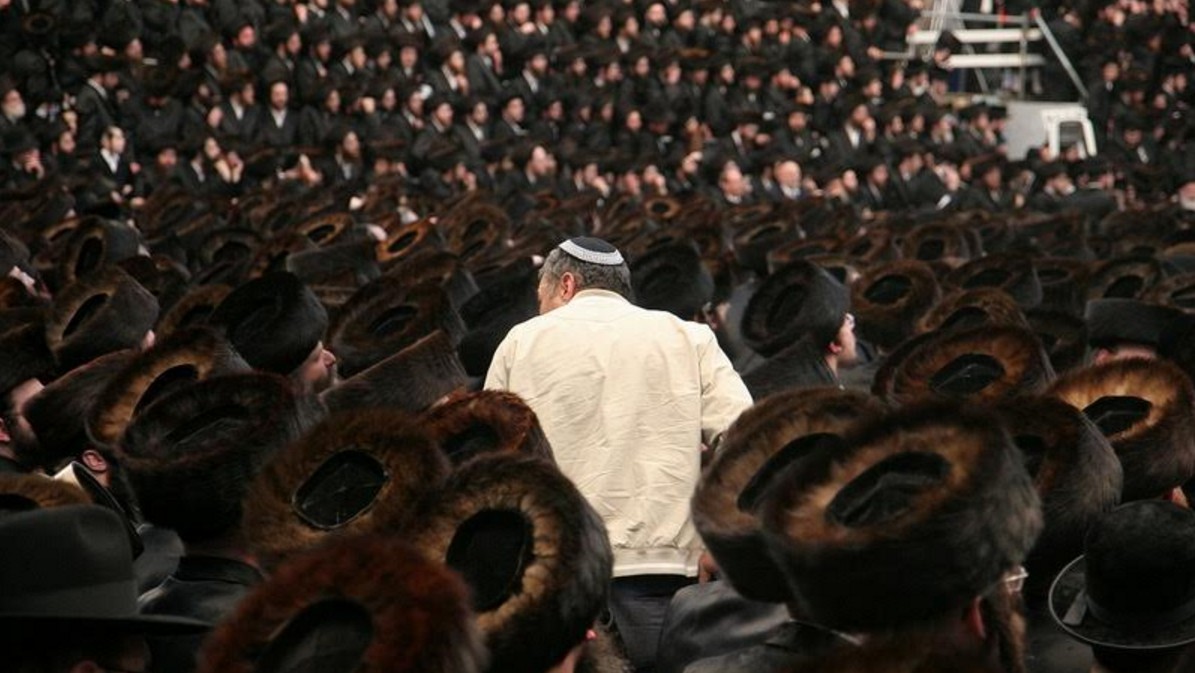 (Photo: Ezra Landau)
(Photo: Ezra Landau)And how do you feel when you see photographers focusing on the less beautiful side of life?
"I think it's a shame because we choose how to focus our vision. Anyone entering a house can decide to photograph the garbage can, but alternatively, they can photograph the children and the family atmosphere, which is much more joyful. So why focus on the negative side of life?"
"Also personally," he adds, "I feel the positive outlook contributes so much to me. Thanks to photography, I've taught myself not to look at a Jew on the street and say: 'He's secular, he's national religious, he's Haredi,' but to look only for the good thing, the positive point in everyone. Although I don't always manage to discover it, sometimes it takes much effort and work, but the positive point always exists. I have no doubt about it."
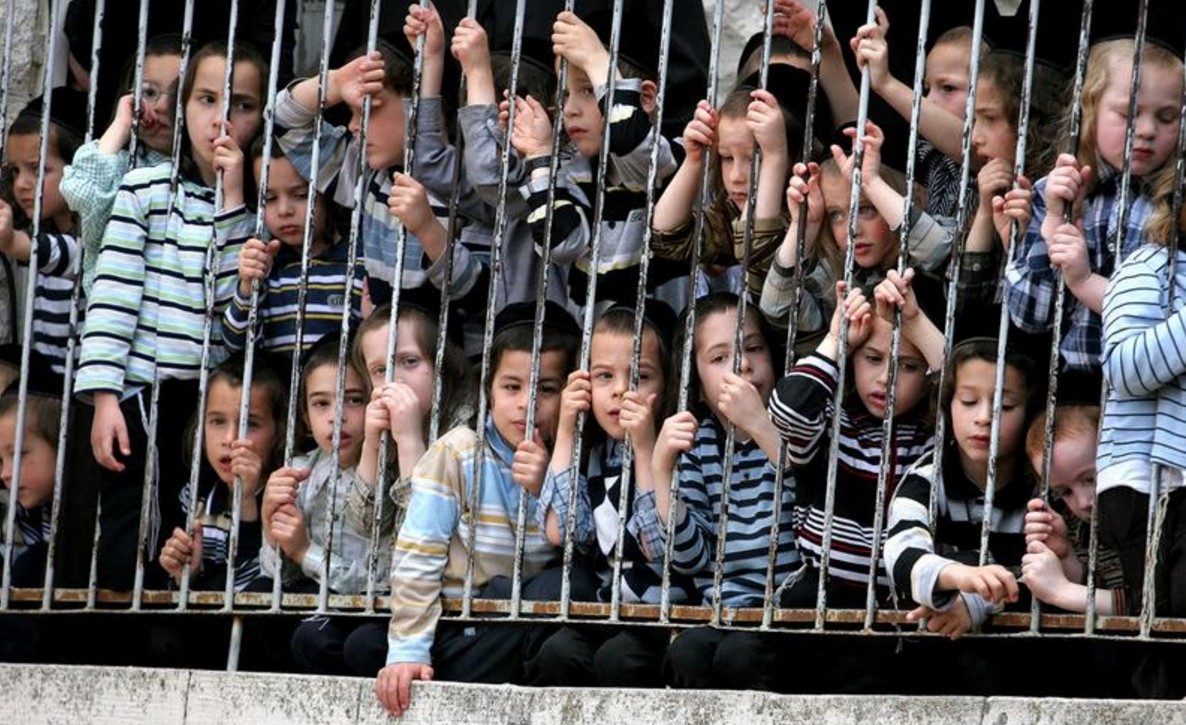 (Photo: Ezra Landau)
(Photo: Ezra Landau)